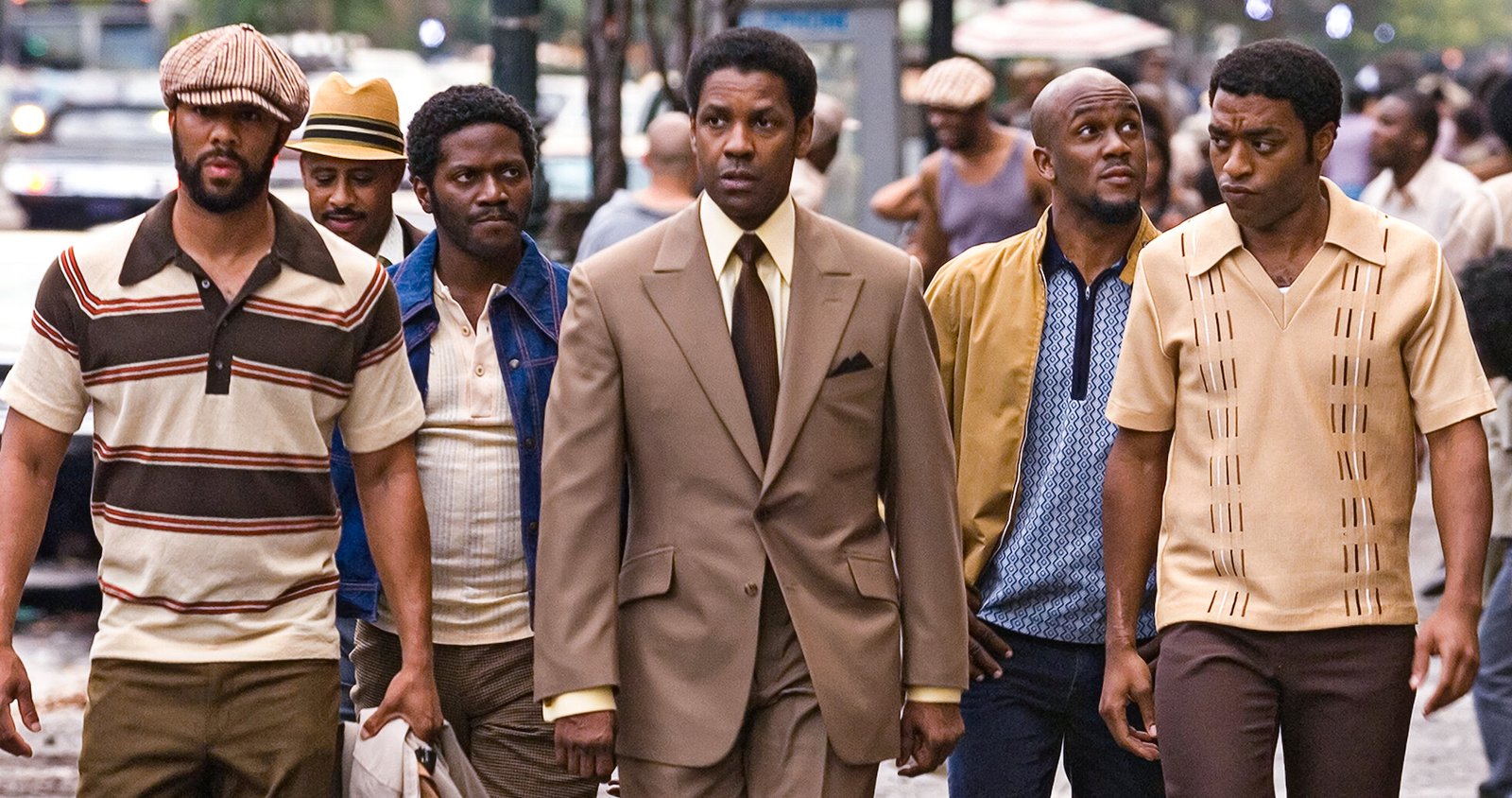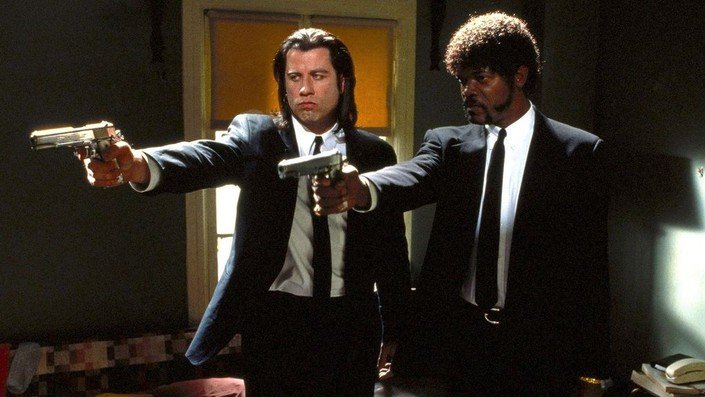
In the annals of American crime history, few figures loom as large and as captivating as Frank Lucas. His story, a tale of ambition, power, and the harsh realities of the drug trade, has been immortalized in the 2007 film “American Gangster,” directed by the legendary Ridley Scott. As we delve into this cinematic masterpiece, we’ll uncover the gritty details of Lucas’ rise to infamy, the intricate web of corruption that enabled his success, and the relentless pursuit of justice that ultimately led to his downfall.
The Early Years: From Humble Beginnings to Criminal Mastermind
Frank Lucas’ journey began in the segregated South, where he was born and raised in the small town of La Grange, North Carolina. Faced with the harsh realities of racial discrimination and limited opportunities, Lucas made the fateful decision to leave his hometown and seek his fortune in the bustling metropolis of New York City.
It was in the Big Apple that Lucas’ criminal ambitions began to take shape. He quickly established himself as a trusted lieutenant to Bumpy Johnson, a powerful Harlem crime boss who had carved out his own empire in the city’s underworld. Under Johnson’s tutelage, Lucas learned the intricacies of the drug trade, honing his skills in the art of distribution and cultivating a network of connections that would prove invaluable in the years to come.
However, Lucas’ rise to power was not without its challenges. The death of Bumpy Johnson in 1968 left a power vacuum in Harlem, and Lucas seized the opportunity to assert his dominance. Through a combination of cunning, ruthlessness, and a keen understanding of the drug market, he managed to establish his own criminal enterprise, becoming one of the most prolific heroin suppliers in the United States.
The Heroin Highway: Lucas’ Ingenious Smuggling Operation
At the heart of Frank Lucas’ success was his innovative approach to the heroin trade. Recognizing the potential for greater profits and a more reliable supply, he devised a daring plan to bypass the traditional drug distribution networks and source his product directly from Southeast Asia.
Lucas’ “Heroin Highway” involved using the U.S. military’s supply chain during the Vietnam War to transport high-quality heroin from the Golden Triangle region of Southeast Asia to the streets of Harlem. By leveraging his connections with corrupt military personnel and exploiting the chaos of the war, Lucas was able to smuggle the drugs into the country with relative ease, undercutting his competitors and amassing a vast fortune in the process.
The sheer scale and audacity of Lucas’ operation were staggering. At the height of his criminal empire, he was reportedly responsible for up to 40% of the heroin supply in the United States, earning him the moniker “The Black Godfather.” His ability to maintain a tight grip on the distribution network and his willingness to eliminate any threats to his dominance made him a formidable force to be reckoned with.
The Pursuit of Justice: The Relentless Efforts of Richie Roberts
As Frank Lucas’ criminal empire grew, so too did the determination of the law enforcement officials tasked with bringing him to justice. At the forefront of this pursuit was Richie Roberts, a tenacious and incorruptible detective who had made it his mission to dismantle Lucas’ drug trafficking operation.
Roberts, played by the talented Russell Crowe in the film, was a complex and multifaceted character. A dedicated officer who had earned the respect of his peers, he was also a man haunted by his own personal demons, struggling to maintain a balance between his professional and private life. Yet, his unwavering commitment to the case and his refusal to be swayed by the pervasive corruption that had infiltrated the New York Police Department made him the perfect foil to Lucas’ criminal genius.
The cat-and-mouse game between Lucas and Roberts was a thrilling and high-stakes affair, with both men driven by their own sense of purpose and determination. As Roberts meticulously built his case, Lucas employed every trick in the book to evade capture, using his vast network of connections and his ability to manipulate the system to his advantage.
The Downfall: The Unraveling of Frank Lucas’ Empire
Despite his best efforts, Frank Lucas’ reign as the “Black Godfather” was ultimately destined to come to an end. The relentless pursuit of Richie Roberts and his team, coupled with the growing scrutiny of law enforcement agencies, began to chip away at the foundations of Lucas’ criminal empire.
The turning point came in 1975, when a routine traffic stop led to the unraveling of Lucas’ carefully constructed network. The discovery of a massive stash of cash and the subsequent investigation revealed the true scale of his drug trafficking operation, exposing the deep-rooted corruption that had allowed him to thrive for so long.
As the walls closed in, Lucas found himself facing the full force of the law. He was arrested, charged, and ultimately sentenced to 70 years in prison, a fate that stood in stark contrast to the lavish lifestyle he had once enjoyed. The downfall of the “Black Godfather” was a testament to the power of persistence and the unwavering pursuit of justice, even in the face of overwhelming odds.
The Legacy of “American Gangster”
The story of Frank Lucas and the making of “American Gangster” has become a cultural touchstone, captivating audiences and sparking discussions about the complexities of the criminal justice system, the impact of racial inequality, and the enduring allure of the gangster narrative.
Ridley Scott’s masterful direction, coupled with the powerful performances of Denzel Washington and Russell Crowe, have elevated the film to the status of a modern classic. The attention to historical detail, the gritty depiction of the drug trade, and the nuanced exploration of the characters’ motivations have all contributed to the film’s enduring popularity and critical acclaim.
Beyond the silver screen, the legacy of “American Gangster” extends to the real-life individuals whose stories inspired the film. Frank Lucas, in particular, has become a figure of fascination, with his life and criminal exploits serving as a cautionary tale about the consequences of unchecked ambition and the corrosive effects of power.
As we reflect on the legacy of “American Gangster,” it’s clear that the film has left an indelible mark on the cultural landscape. It serves as a powerful reminder of the complexities of the human condition, the allure of power and wealth, and the relentless pursuit of justice in the face of overwhelming odds.
Lessons Learned and the Enduring Fascination with the Gangster Narrative
The story of Frank Lucas and the making of “American Gangster” is a captivating exploration of the human condition, the allure of power, and the relentless pursuit of justice. Through the lens of this cinematic masterpiece, we’ve witnessed the gritty rise and fall of a criminal mastermind, the intricate web of corruption that enabled his success, and the unwavering determination of those who sought to bring him to justice.
As we bid farewell to this gripping tale, it’s clear that the fascination with the gangster narrative remains undiminished. The story of Frank Lucas and “American Gangster” serves as a powerful reminder of the complexities of the human experience, the consequences of unchecked ambition, and the enduring struggle between the forces of good and evil.


